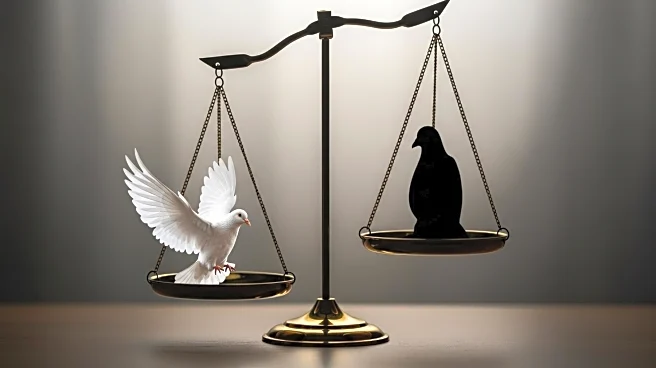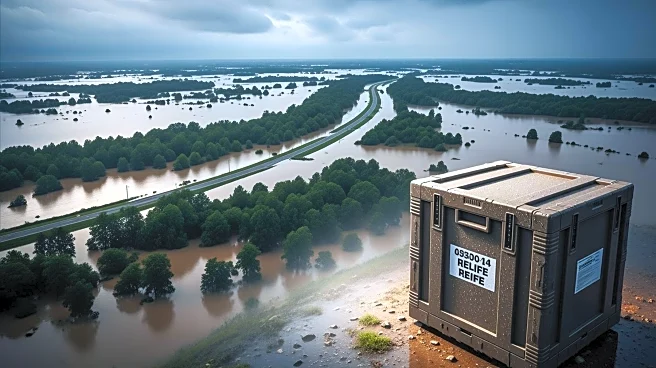What's Happening?
The ceasefire in Gaza remains intact following the release of the last living hostages and Palestinian prisoners. However, uncertainties persist regarding the U.S. plan for the region, including the return of deceased hostages' bodies by Hamas and Israel's demand for Hamas to disarm. The future governance of Gaza is also unclear. The Israeli military reported an incident where troops fired at individuals approaching them in the northern Gaza Strip, highlighting ongoing tensions. The International Committee of the Red Cross (ICRC) has noted the challenges in recovering and returning the remains of deceased hostages, emphasizing the complexity of such operations compared to freeing living hostages. Meanwhile, the release of nearly 2,000 Palestinian prisoners has brought attention to the harsh conditions they faced in Israeli prisons, with reports of health issues and alleged mistreatment.
Why It's Important?
The situation in Gaza has significant implications for regional stability and U.S. foreign policy. The ceasefire's maintenance is crucial for preventing further escalation of violence, which could impact U.S. diplomatic efforts and humanitarian aid strategies. The unresolved issues surrounding hostages and governance in Gaza could affect international relations, particularly with countries involved in the peace process. The allegations of mistreatment of Palestinian prisoners may influence public opinion and human rights advocacy, potentially affecting U.S. and international pressure on Israel regarding its prison practices. The reconstruction needs in Gaza, estimated at $70 billion, highlight the economic challenges and potential opportunities for international aid and investment.
What's Next?
Future developments may include negotiations over the governance of Gaza and the disarmament of Hamas, which could involve international stakeholders such as the U.S., Turkey, and other nations. The ICRC's role in handling the sensitive task of recovering and returning remains will continue, with potential implications for diplomatic relations and humanitarian efforts. The U.N. and other organizations may seek further funding and support for Gaza's reconstruction, with potential contributions from the Arab world, Europe, and the U.S. Turkish President Recep Tayyip Erdogan has emphasized the need for a two-state solution, suggesting ongoing diplomatic efforts to achieve lasting peace.
Beyond the Headlines
The ethical and humanitarian dimensions of the Gaza situation are profound, with the treatment of prisoners and the challenges of rebuilding a war-torn region raising questions about international responsibility and justice. The long-term impact on Palestinian society and the geopolitical landscape could be significant, influencing future peace negotiations and regional alliances. The role of international organizations in facilitating recovery and ensuring compliance with agreements may shape the future of conflict resolution and humanitarian intervention in similar contexts.








